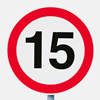Here are some recommendations to avoid risks and to ensure the proper use and safe use of the Internet by children.
 1.- Communication between parents and children is essential to create an adequate climate of trust. We will do it in a clear, respectful and constant way, helping them to know both the advantages and the main threats of the Internet. Although it seems obvious, they are not often given enough freedom to tell us what is perhaps worrying them.
1.- Communication between parents and children is essential to create an adequate climate of trust. We will do it in a clear, respectful and constant way, helping them to know both the advantages and the main threats of the Internet. Although it seems obvious, they are not often given enough freedom to tell us what is perhaps worrying them.
 2.- The Location of the computer. The computer on which children are connected to the Internet should not be in their room, out of the reach or supervision of the parents. This will help in several important ways: we can guide them more easily in their first experiences, we will control the time they are connected and we will have a continuous knowledge of their activities. At the same time trying not to make them feel that we are invading their privacy.
2.- The Location of the computer. The computer on which children are connected to the Internet should not be in their room, out of the reach or supervision of the parents. This will help in several important ways: we can guide them more easily in their first experiences, we will control the time they are connected and we will have a continuous knowledge of their activities. At the same time trying not to make them feel that we are invading their privacy.
 3.- Antiviruses. Avoid viruses, worms and Trojans on your computer. Do not open emails from unknown senders or trust all the web pages we find and we must have a reliable and updated antivirus. There are excellent free antiviruses and web pages available on the Internet such as Microsoft Security Essentials, Avira AntiVirus, Malwarebytes, Grisoft AVG, or virustotal.com.
3.- Antiviruses. Avoid viruses, worms and Trojans on your computer. Do not open emails from unknown senders or trust all the web pages we find and we must have a reliable and updated antivirus. There are excellent free antiviruses and web pages available on the Internet such as Microsoft Security Essentials, Avira AntiVirus, Malwarebytes, Grisoft AVG, or virustotal.com.
 4.- Learn. On many occasions we do not help children because we simply do not know how to do it and even ignore the risks involved. We must keep ourselves informed, reading news, informative blogs like this one and any other source of related information to try to reduce that “digital gap” that currently exists between parents and children. It is also advisable to get involved in a social network, even if we do not become advanced users, but this way we will manage to learn how it works and will be able understand them when they speak with a more specialized language.
4.- Learn. On many occasions we do not help children because we simply do not know how to do it and even ignore the risks involved. We must keep ourselves informed, reading news, informative blogs like this one and any other source of related information to try to reduce that “digital gap” that currently exists between parents and children. It is also advisable to get involved in a social network, even if we do not become advanced users, but this way we will manage to learn how it works and will be able understand them when they speak with a more specialized language.
 5.- Teaching privacy. Make it clear from the beginning and insist as they grow up that the Internet is “open” to everyone, that the information we put there could be seen all over the world and will remain there forever, at least potentially so. You have to be informed and help them configure the privacy options of social networks. They should understand the importance of safeguarding their personal data and images. If they refuse to receive help or to make the configuration, a good way to encourage them to do so is to open our own account and communicate it to them. That way they will be forced to do so to prevent us from having access to all their information.
5.- Teaching privacy. Make it clear from the beginning and insist as they grow up that the Internet is “open” to everyone, that the information we put there could be seen all over the world and will remain there forever, at least potentially so. You have to be informed and help them configure the privacy options of social networks. They should understand the importance of safeguarding their personal data and images. If they refuse to receive help or to make the configuration, a good way to encourage them to do so is to open our own account and communicate it to them. That way they will be forced to do so to prevent us from having access to all their information.
 6. Limit their possibilities on the Internet or at least try to. It is not simple or 100% reliable. But there are things we must try. It is highly recommended that you use the computer under a user without administrator privileges. In this way we will be limiting the possibility of installing a program without authorization. Also, if you install parental control applications, they cannot deactivate them. Many operating systems have their own tools that act as filters against inappropriate content. It is advisable to inform ourselves and study which product best suits our values.
6. Limit their possibilities on the Internet or at least try to. It is not simple or 100% reliable. But there are things we must try. It is highly recommended that you use the computer under a user without administrator privileges. In this way we will be limiting the possibility of installing a program without authorization. Also, if you install parental control applications, they cannot deactivate them. Many operating systems have their own tools that act as filters against inappropriate content. It is advisable to inform ourselves and study which product best suits our values.
 7.- Teach respect. Minors can be victims on the Web but may also commit crimes such as intercepting third party communications or slandering other users. It is very important to clarify to the children that the Internet is not an anonymous medium and that if they commit an illegal action, a sanction will fall on the owner of the line.
7.- Teach respect. Minors can be victims on the Web but may also commit crimes such as intercepting third party communications or slandering other users. It is very important to clarify to the children that the Internet is not an anonymous medium and that if they commit an illegal action, a sanction will fall on the owner of the line.
 8.- Webcam. Remove or minimize the use of the webcam. They should never be turned on unless you are sure who is watching the images, even recording them. There are malicious programs that are able to send images from the webcam without us noticing. It is advisable to cover the target of the webcam physically if it cannot be uninstalled, as it happens in laptops.
8.- Webcam. Remove or minimize the use of the webcam. They should never be turned on unless you are sure who is watching the images, even recording them. There are malicious programs that are able to send images from the webcam without us noticing. It is advisable to cover the target of the webcam physically if it cannot be uninstalled, as it happens in laptops.
 9.- Review. The use of the Internet in a computer leaves information that we can check from time to time to know which pages they visit. Although the simplest thing is to see the browsing history in the browser, we can also check the ‘cookies’ that are small files that are stored in memory and that identify the page that we have visited. However, this is no longer useful when the child knows the options of deleting history and cookies, or private browsing that leaves no trace (it is already available in all the usual browsers.)
9.- Review. The use of the Internet in a computer leaves information that we can check from time to time to know which pages they visit. Although the simplest thing is to see the browsing history in the browser, we can also check the ‘cookies’ that are small files that are stored in memory and that identify the page that we have visited. However, this is no longer useful when the child knows the options of deleting history and cookies, or private browsing that leaves no trace (it is already available in all the usual browsers.)
 10.- Help. If we suspect or know that our child has a problem on the Internet and we cannot solve it, the best we can do is seek help from specialized people. For any inquiries regarding Internet safety and harassment of minors, please contact the specialized police services in your country.
10.- Help. If we suspect or know that our child has a problem on the Internet and we cannot solve it, the best we can do is seek help from specialized people. For any inquiries regarding Internet safety and harassment of minors, please contact the specialized police services in your country.
